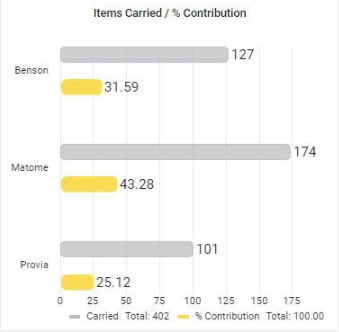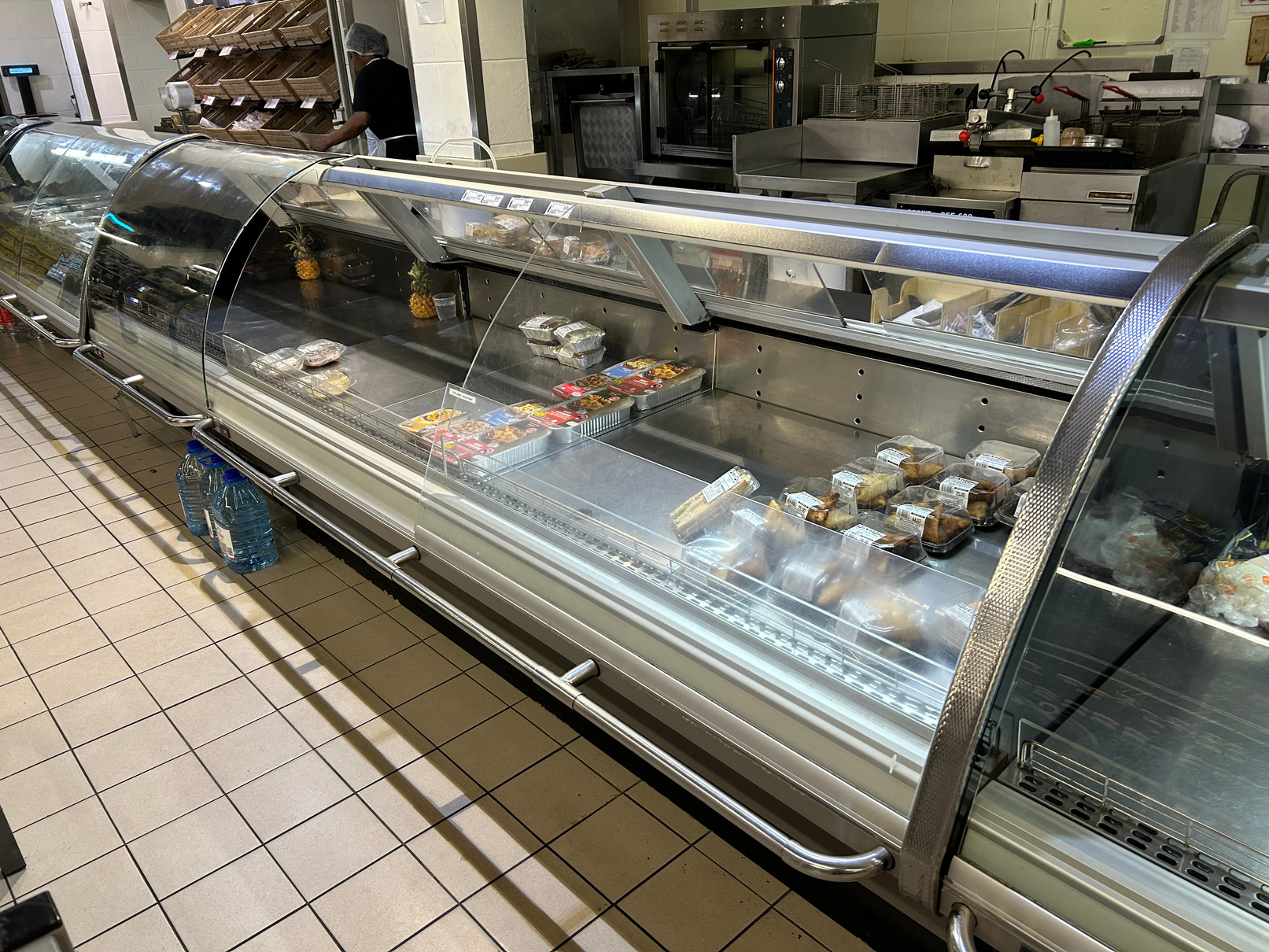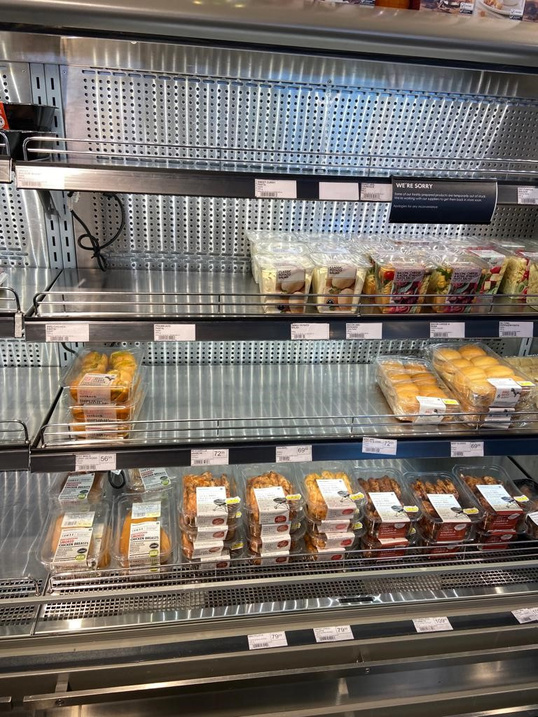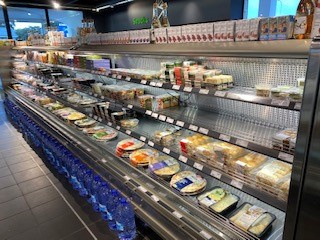Newsroom

June 2024

LINKED IN ARTICLE
The Thinking Store
Next time you walk through a supermarket entrance, enjoying the vibrant flowers and well-lit displays, imagine it as a "Thinking Store" where technology and efficiency transform the operational economics. Too often supermarkets still have cashiers waiting at empty checkouts while teams of merchandisers are spending their work hours talking in the aisles and slowly restocking shelves.
Outdated methods are expensive
Whereas many stores have large staff complements, not all employees contribute effectively every day. Managing so many people with paper checklists and countless WhatsApp’s is challenging. The system demoralizes diligent staff and complicates operations. But Retailers have historically valued consistency over innovation and are focussed on immediate costs rather than long term benefits, resulting in stores struggling operationally in today’s market, where online shopping and tight consumer spending pressurizes the bottom line. And Staff salaries are now the single largest expense, further straining finances.
Linked In Article: https://www.linkedin.com/pulse/thinking-store-vincent-l-lanz-qslwf/?trackingId=sFjSdpneR%2F%2BGB%2FGotBNmNg%3D%3D
May 2024

POST
It’s about the Contribution, not the hours
As ShelfLink’s Scoreboard reports live on the work being completed on the floor, staff are realizing that they need to take responsibility for completing work. And those members of staff, that everybody knows are not contributing, now show up immediately.
Things have changed
- Labour is a greater percentage of expenses than before and margins are lower
- There are many more shortterm relationship employees- not all known to owner and staff are not committed to the store/business
Add to that on average 30% more line items than 15 years ago and you have a lot of lines to track and many more employees to track. Doing so in a paper based environment results in employee contribution and margin slide
April 2024

LINKED IN POST
“Battle Stats” for Retail ?
A quick back of napkin calculation of the five large Retail Stores contributing to the W23 Global fund, shows that Aussie employees generate 2.9 times more sales than South African employees. And English employees generate 3.1 times more sales per employee.
Wages are the single biggest Retail store Expense Item. And most stores feel that they can operate with fewer employees but don’t know who to keep.
It seems that the problem is not just that there is no floor productivity measure - most stores don’t have a Departmental workflow either.
Supermarket Franchise Owners are often pushed to employ more staff simply because the Dept Heads say they need more hands – be it Production, Merchandisers or Cashiers.
Additional people don’t necessary improve productivity, but they do drive up Expenses, jeopardising the business.
March 2024

CX is about floor performance, isn’t it ?
Retailers are battling with decreasing margins – both gross and net and it continues to get worse. Yet they are bombarded with Customer Facing initiatives – all promising to address that problem.
But clients that we talk to say that there is little attention spent on improving floor performance – the “engine room of the store”. Gross margin is impacted by Waste, Out of Stocks and Customer Experience, while Expenses continue to grow without a proportionate contribution improvement – both pressurizing store viability. And there is every expectation that this will trend higher.
Are you finding that ?
Losing Lines ?
Its going to continue to happen, unless you have a means to track what is not getting to shelf and manage it.
And yes, its expensive, because nobody has tools to check it on the shelf

June 2024:
The Thinking Store - continued
Auto directed Staff and Alerts
The "Thinking Store," shifts operations from paper to a digital screen, significantly improving efficiency and accountability. This system adjusts staff roles based on real-time needs, such as moving employees from merchandising to checkouts as the store fills, preventing queues.
Tasks are tracked in real-time, allowing staff to respond promptly. For example, a baker is alerted when rolls are selling out, ensuring fresh batches are made for later shoppers. Essential tasks like temperature checks and equipment maintenance are digitally logged, letting the system alert out of scope variances or error patterns.
Have you contributed enough ?
And the "Thinking Store" holds employees accountable and encourages ownership of their work, as each staff member builds a monthly Contribution Score, which influences remuneration. This shifts the work onus onto the employee, as the system indicates those performing below the necessary contribution level.
In a tough, repetitive business that needs constant attention, digital management will prove the differentiator, enhancing productivity, accountability, and overall efficiency.
Linked In: https://www.linkedin.com/pulse/thinking-store-vincent-l-lanz-qslwf/?trackingId=sFjSdpneR%2F%2BGB%2FGotBNmNg%3D%3D
Showing when the Fastest lines were checked
March 2024:
Getting Stock to Shelf faster & cheaper
Store Owners constantly worry that stock (including new lines) gets to shelf and remains in stock. A detailed accounting report will tell if it was purchased or sold. But Retailers don’t want to look at another report, they want the Item on shelf, selling.
The problem is not the report - showing what happened, the problem is changing the work done in the first place, the input.
Stores that we are working with are frustrated at lost sales, stock buried in receiving and lack of application by entrusted staff.
The question is what this costs stores on a monthly basis ?